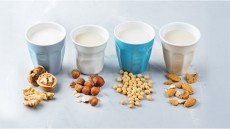Appetite for Australian coffee: Black Bag Roasters’ new plant revs up capacity for South East Asian expansion

Located at Truganina, a suburb in Melbourne, Australia, the plant houses a 600kg Italian-made Brambati roaster, which is fitted with a catalytic converter that significantly reduces greenhouse gases emitted during the roasting process.
“With this state-of-the-art production centre and the additional capacity, it allows us to explore new business opportunities in South East Asia (SEA). We are now able to provide an end-to-end solution and get a product to market within 16 weeks,” Lance Brown, Director of Sales at Black Bag Roasters, told FoodNavigator-Asia.
The firm offers “coffee solutions” to brands and companies, such Minor Hotels, which include sourcing of coffee beans, blending and formulation, roasting and packaging.
Its R&D team in Australia is headed by 2013 World Barista Champion Pete Licata.
A carbon-neutral company accredited by Climate Active, a programme administered by the Australian government, Black Bag Roasters also has plans to install solar panels in the plant to further lower energy consumption.
“Sustainability is a key pillar for us. It’s not just about delivering a fair-trade product. We have reduced the size of our coffee bags by 7%, and we are constantly looking at better and more sustainable ways of doing business — from sourcing and roasting to packaging and marketing. For example, we visit the coffee estates in South India to learn about sourcing in the most responsible manner,” said Shane Harold, National Business Manager at Black Bag Roasters.
What’s trending
The boom in Australia’s coffee culture over the past two decades have led Melbourne to be widely regarded as the coffee capital of the world today.
Speaking on emerging trends in the industry, the firm noticed that major specialty cafes in Australia, such as ST. ALi and Veneziano Coffee Richmond, are now stocking their branded beans on supermarket shelves and retail spaces.
“Many big players in SEA are also looking to have their own branded offerings. When we spoke to the local supermarkets in Thailand, they were very keen to push out coffee products that state ‘roasted in Australia’,” Brown added.
While 1kg packs still boast the best sales, smaller formats such as 250g packs have gained popularity ever since the pandemic, as consumers preferred the latter to make their own cup of joe at home.
In addition, the firm has observed a growing demand for convenient and ready-to-drink options.
“Coffee pods or capsules, coffee with milk alternatives, bottled cold brews with less or no sugar, flavoured coffees, drip bags, and premium instant sachets — we think these are going to be big sellers, especially in SEA,” said Harold.
Highly sought after
In 2022, Black Bag Roasters attained a growth of more than 200% for its international sales.
“We are very intrigued by the huge increase of coffee shop franchises in SEA. In China, Malaysia, Singapore, Thailand and Vietnam, the appetite for specialty coffee from Australian roasters is stronger than ever. Consumers in these markets are no longer just looking for cheap coffees, but also top-quality ones,” Harold shared.
This year, the firm’s focus is on extending its reach to wider groups of consumers beyond hotels and cafes to supermarkets and convenience stores, among others.
“We not only want to grow our existing overseas markets, but we also aim to expand further into other markets throughout the world under The Coffee Club Australia brand. There is still a lot of untapped potential in SEA countries like Myanmar, as well as in India and the UAE,” he reiterated.

















